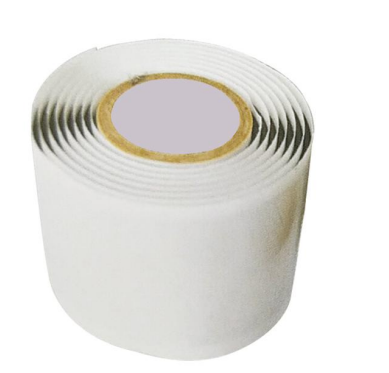Understanding the Pricing of PVC Electrical Tape
PVC electrical tape is an essential tool in both professional and DIY electrical work. Its versatility, durability, and insulating properties make it a preferred choice among electricians and hobbyists alike. As with any product, understanding its price point can help consumers make informed purchasing decisions. This article will delve into the factors influencing the price of PVC electrical tape and offer insights into the market trends.
What is PVC Electrical Tape?
PVC (polyvinyl chloride) electrical tape is a type of pressure-sensitive tape used primarily to insulate electrical wires and other materials that conduct electricity. The tape is designed to adhere well to itself and typically has high resistance to abrasion, moisture, and various solvents. It comes in several colors, allowing for easy identification in complex wiring setups. Commonly used in electrical applications, this tape is also employed in general repairs, organization, and even some crafting projects.
Factors Influencing Price
1. Material Quality The price of PVC electrical tape can vary significantly based on the quality of the materials used. High-quality PVC offers better durability and insulation properties, which can justify a higher price. Some brands implement advanced manufacturing processes that enhance the tape's resilience, thus affecting its cost.
2. Brand Reputation Well-known brands with a strong reputation for reliability and performance often charge a premium for their products. Consumers tend to pay more for brands they trust, which can influence the average market price of PVC electrical tape.
3. Size and Thickness PVC electrical tape is available in various sizes and thicknesses, and these dimensions can impact the price. A wider or thicker roll may be more expensive due to the increased material costs and the potential for broader application in more demanding environments.
pvc electrical tape price

4. Color Variation While black is the most common color for electrical tape, other colors may be required for specific projects. Colored PVC electrical tape can sometimes command a higher price due to manufacturing complexity and demand for specific applications.
5. Packaging and Quantity Prices can also vary based on how the tape is packaged. Single rolls may cost more per unit than bulk packages. Purchasing multiple rolls at once can lead to savings and is often encouraged by retailers.
6. Regional Pricing Differences Prices may fluctuate depending on location due to factors such as shipping costs, local demand, and the presence of competitors. Urban areas may see different pricing trends compared to rural regions.
Market Trends
The market for PVC electrical tape has shown steady growth, driven by increasing demand for residential and commercial construction. As industries such as automotive, electronics, and renewable energy expand, so too does the need for reliable insulating materials. Additionally, the rise of DIY projects during times of economic uncertainty has led many consumers to seek out affordable yet effective solutions, further boosting the market for PVC electrical tape.
In recent years, technological advancements have also played a crucial role in shaping the pricing landscape. Enhanced manufacturing techniques allow for better products at competitive prices. As a result, consumers now have access to a wider variety of tape options, catering to different needs and budgets.
Conclusion
In summary, the pricing of PVC electrical tape is influenced by a multitude of factors, including material quality, brand reputation, size, and market trends. As competition grows and technology improves, consumers can expect to find a range of options that meet their specific requirements. Understanding these factors can empower buyers to choose the right PVC electrical tape for their needs while ensuring they receive the best value for their money. Whether you're a professional electrician or a DIY enthusiast, investing in high-quality PVC electrical tape is essential for safe and effective electrical work.
-
XIANGFAN Rubber Tape-Ultimate Solutions for All Your Insulation NeedsNewsJun.24,2025
-
XIANGFAN Rubber Tape-Protection for Industrial and Residential ApplicationsNewsJun.24,2025
-
XIANGFAN Rubber Tape: Superior Safety and Sealing for Demanding EnvironmentsNewsJun.24,2025
-
XIANGFAN Rubber Tape: Reliable Solutions for Every Electrical ChallengeNewsJun.24,2025
-
XIANGFAN Electrical & Industrial Tape: Powering Reliability Across IndustriesNewsJun.24,2025
-
XIANGFAN Electrical & Industrial Tape: Excellence in Every ApplicationNewsJun.24,2025
